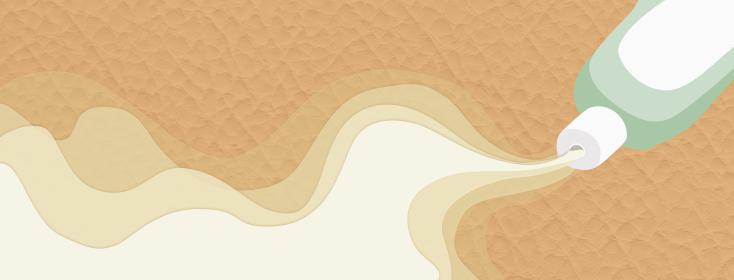Tips and Tricks for Dealing With a Dry and Itchy Body
Lung cancer patients deal with a variety of treatments that affect their bodies in adverse ways. Radiation can affect the skin, making it sensitive and prone to burning, as well as drying it out. Many drugs used to treat lung cancer, whether targeted drugs or traditional chemotherapy, also dry out the body. Side-effects of various medications include rashes and pervasive acne. Patients may find themselves affected quite literally from head to toe.
Different patients will respond differently to their treatments and side-effects manifest in often unique ways. Sometimes it is a struggle to find balance in treating the side-effects in a manner that works and also feels good to the patient. For many side-effects, there are drugs that can counter them, for others it falls to the patient to actively address the issues in a physical way.
Dry Skin Relief
When drinking more is not enough to keep the skin hydrated, it is time to address two issues: what the patient is doing to cause more dryness and what the patient is doing to relieve the dryness. Often lung cancer patients will be advised to avoid prolonged exposure to direct sunlight. While the sun may exacerbate a rash caused by a treatment, it can also be very drying in general. Also, in spite of how patients may feel oily or dirty after their treatments, it is important to moderate how frequently they shower or clean themselves with soap. Discussing options with a dermatologist or their oncologist is a good place to start, but most adults do not need to bathe every day. In fact, in addition to drying the skin, too much bathing also strips the skin of protective oils and healthy bacteria that are essential for optimal immune system function.
To keep the skin hydrated, there are various forms of lotion available that work well for different people. A good rule of thumb, however, is to stick with unscented lotions. While most commercial lotions are safe to use, the perfumes in scented lotions may cause reactions in some people, especially those with compromised immune systems. Similarly, natural oils are often extremely good for moisturizing both the skin and the scalp, but patients should avoid essential oils that contain potentially volatile, active organic compounds. Treat essential oils the same as scented lotions and avoid them as moisturizers. Also, oils should be considered in a similar manner as foods for patients who have existing allergies. For instance, although many oils are clarified and may pose no risk, a patient with an almond allergy might want to avoid almond oil as a moisturizer and instead go with something else -- after all, there are no shortages of oils available these days. Small amounts of coconut and olive oils are purported to work well as moisturizers, but patients may want to avoid common cooking oils.
Scalp Relief
Scalp relief is best found with various oils as well. However, unless the patient is okay having excessively oily hair, such treatments often have to be washed out after a few hours. Still, the longer a patient can leave the oil on his or her scalp, whether under a shower cap or not, the more relief the patient is likely to feel. When it comes time to wash out, using a very mild shampoo is best. Experimentation is important, especially when it comes to shampoos and conditioners. Trying to find products without scents can prove difficult, so quickly washing and rinsing them out may help. Some products may actually irritate the scalp more, so consulting with a dermatologist may be necessary. Dry shampoos might be a viable alternative for some patients, though they are not a full replacement for thoroughly cleaning the hair.
In general, dealing with a dry body as the result of cancer treatment is an ongoing process. But, just as other treatment side-effects often come and go, the dryness levels may vary day to day. Having the right tools handy to address different body parts will make it easier. Stocking a variety of moisturizers, ranging from unscented hand and face creams to hypoallergenic lotions to ointments and gels, will mean having the right product available to address whatever comes up.
Editor's Note: We are extremely saddened to say that on October 21, 2018, Jeffrey Poehlmann passed away. Jeffrey’s advocacy efforts and writing continue to reach many. He will be deeply missed.
Community Poll
Have you taken our In America Survey yet?

Join the conversation